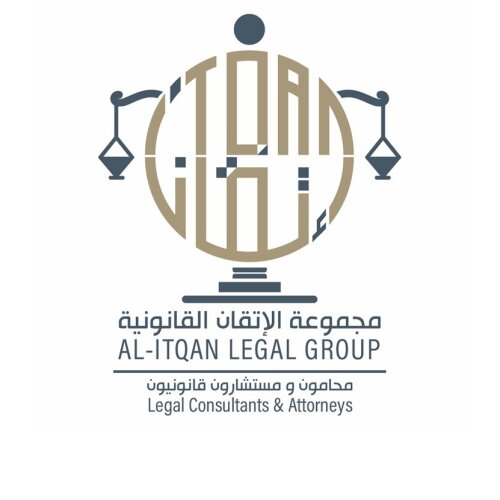Best Public-Private Partnerships (PPP) Lawyers in Kuwait
Share your needs with us, get contacted by law firms.
Free. Takes 2 min.
Or refine your search by selecting a city:
List of the best lawyers in Kuwait
About Public-Private Partnerships (PPP) Law in Kuwait
Public-Private Partnerships, commonly known as PPPs, are joint initiatives where the government partners with private sector companies to finance, construct, operate, or maintain infrastructure and services. In Kuwait, PPPs are regulated by specific legislation that aims to encourage private investment in national projects such as energy facilities, transport networks, healthcare infrastructure, and more. The country's commitment to infrastructure development and diversification beyond oil has made PPPs an essential approach for achieving its ambitious economic and social goals. Kuwait's PPP legal framework strives to ensure fair opportunities for private sector participants while safeguarding public interests.
Why You May Need a Lawyer
Engaging in a PPP project in Kuwait can be complex due to local regulations, compliance requirements, and contractual obligations. You may need a lawyer for several reasons, such as:
- Understanding eligibility and prequalification criteria for PPP projects
- Preparing and reviewing bids and proposals
- Negotiating and drafting contracts that comply with Kuwaiti law
- Navigating the project approval process and government entities involved
- Advising on risk allocation, performance guarantees, and dispute resolution mechanisms
- Ensuring compliance with labor, environmental, and financial regulations
- Handling taxation, foreign ownership, investment protection, and repatriation of profits
- Litigation or arbitration in case of disputes between the public and private parties
A skilled lawyer ensures your interests are protected, helps you avoid pitfalls, and improves the chances of a successful partnership.
Local Laws Overview
The main law governing PPPs in Kuwait is Law No. 116 of 2014 Regarding Public-Private Partnership, along with subsequent executive regulations. This law established the Kuwait Authority for Partnership Projects (KAPP), which oversees all PPP initiatives. Some key aspects of local laws include:
- Clear definition of PPP project types, including Build-Operate-Transfer (BOT), Build-Operate-Own (BOO), and others
- Mandatory competitive bidding processes to award PPP contracts
- Limits on contract durations, typically up to 40 years, including extensions
- Special legislative provisions for land use, project ownership, and asset transfer at the end of the concession period
- Foreign investor participation is allowed but may have specific restrictions and requirements
- Obligation to establish a project company, often as a Kuwaiti joint stock company for large scale projects
- Government guarantees, financial support, and risk allocation procedures
- Environmental, social, and labor law compliance duties for all parties
Thorough knowledge of these legal provisions helps in the smooth execution and management of PPP projects.
Frequently Asked Questions
What is considered a PPP project in Kuwait?
A PPP project involves partnership between a government entity and one or more private sector companies, typically for financing, developing, operating, or maintaining public infrastructure or services under a regulated framework.
Who regulates PPPs in Kuwait?
The Kuwait Authority for Partnership Projects (KAPP) is the main body responsible for overseeing, regulating, and managing PPP projects in Kuwait.
Can foreign companies take part in PPP projects in Kuwait?
Yes, foreign companies can participate, but they often need to partner with local entities, meet certain criteria, and comply with investment and ownership regulations.
What types of legal entities are used for PPP projects?
Often, a project company is set up as a Kuwaiti joint stock company, especially for large-scale infrastructure projects. The exact structure depends on the project size and requirements.
How are PPP contracts awarded?
PPP contracts are usually awarded through a competitive, transparent bidding process managed by KAPP under clear qualification and evaluation criteria.
Are there limits on PPP contract durations?
Yes, contract terms are defined by law and typically last up to 40 years, including any approved extensions, depending on the project.
What happens to project assets when the contract period ends?
At the end of the contract, assets are usually transferred back to the government or relevant public entity, as stated in the project agreement.
What are the key risks associated with PPPs?
Key risks include project delays, cost overruns, regulatory and compliance challenges, demand risks, and potential disputes between the parties.
How are disputes resolved in PPP arrangements?
Most PPP contracts include dispute resolution clauses that may involve negotiation, mediation, arbitration (sometimes international), or litigation in local courts.
What role does a lawyer play in PPP projects?
A lawyer assists with contract drafting and negotiation, regulatory compliance, bid preparation, risk assessment, stakeholder communication, and dispute resolution.
Additional Resources
To learn more or seek guidance, these resources can be helpful:
- Kuwait Authority for Partnership Projects (KAPP) - The primary government body responsible for PPP management and guidance
- Ministry of Finance - Offers information on investment policies and economic regulations
- Kuwait Chamber of Commerce and Industry - Resource for business registration, regulations, and investment support
- Law firms and legal consultants in Kuwait with expertise in PPP projects
- Professional associations and international organizations focused on infrastructure and investment in the GCC region
Next Steps
If you are considering involvement in a PPP project or need legal advice:
- Gather all relevant documents, including project proposals, regulatory notices, and contracts
- Consult with an experienced lawyer or legal consultant specializing in PPPs and Kuwaiti law
- Clarify your project goals, required approvals, and compliance obligations
- Request a legal review of any draft contracts or bid documents before submission
- Discuss risk management, tax matters, and dispute resolution options with your legal advisor
- Keep updated on changes to PPP laws or regulations by following official government announcements
A knowledgeable legal professional can safeguard your interests, help you navigate the complex legal requirements of PPP projects, and increase your chances of success in Kuwait's vibrant infrastructure and development sector.
Lawzana helps you find the best lawyers and law firms in Kuwait through a curated and pre-screened list of qualified legal professionals. Our platform offers rankings and detailed profiles of attorneys and law firms, allowing you to compare based on practice areas, including Public-Private Partnerships (PPP), experience, and client feedback.
Each profile includes a description of the firm's areas of practice, client reviews, team members and partners, year of establishment, spoken languages, office locations, contact information, social media presence, and any published articles or resources. Most firms on our platform speak English and are experienced in both local and international legal matters.
Get a quote from top-rated law firms in Kuwait — quickly, securely, and without unnecessary hassle.
Disclaimer:
The information provided on this page is for general informational purposes only and does not constitute legal advice. While we strive to ensure the accuracy and relevance of the content, legal information may change over time, and interpretations of the law can vary. You should always consult with a qualified legal professional for advice specific to your situation.
We disclaim all liability for actions taken or not taken based on the content of this page. If you believe any information is incorrect or outdated, please contact us, and we will review and update it where appropriate.
Browse public-private partnerships (ppp) law firms by city in Kuwait
Refine your search by selecting a city.
















